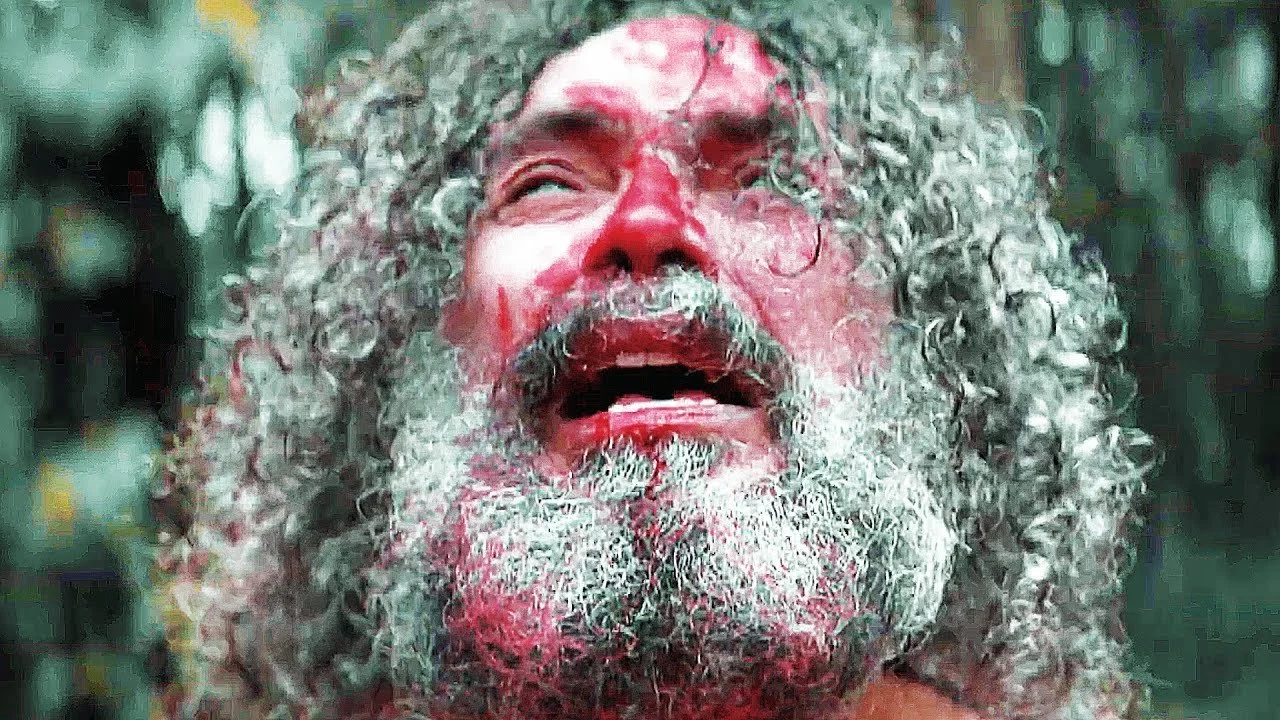Danse Macabre #13: Film Review — "The Abominable Dr. Phibes" (1971)
In 1981, Stephen King published Danse Macabre, a work of non-fiction wherein the author acts as a tour guide through the history of horror. He addresses the social issues and political conflicts that have influenced creators over the years, and the ways creators have influenced each other.
King closes out the volume by recommending 96 films and 113 books released during the 1950-1980 period that he feels have significantly contributed to modern genre fiction. With this Fearsome Queer column, I’ll be making my way through those titles in no particular order.
After reviewing The Conqueror Worm (aka, Witchfinder General) for last month’s column, I decided to plow ahead with another Vincent Price picture—because Price has been a favorite of mine since I was a kid, and I cherish him. Picture it! Ohio, 1999! My eight(ish)-year-old self is watching the original House on Haunted Hill late one night, and spooky little me is drawn to Price’s grim jocularity and ghastly charm—plus, he reminds me of Vincent Van Ghoul from Scooby-Doo. Instant fan. Fast-forward quickly to the present, and I still have a profound appreciation for him, but now that fondness has extended beyond his macabre vibe to encompass his skill as a dramatic tactician. Unfortunately, the filmmakers Vincent Price collaborated with didn’t always match his level craftsmanship, but thankfully Phibes-helmer Robert Fuest proves himself to be a worthy director of such talents.
Robert Fuest was an artisan. Like myself, Fuest spent ample time in the art department, conceiving and building sets for TV. It’s kind of funny… He eventually made the transition that my family assumed I’d make, after studying directing in school but working in set dec for a living instead. To my relatives, who don’t understand the business, this pathway made perfect sense: they presumed everyone started as crew and “worked up” to director. But no, a proverbial steady “climb” up the opportunity ladder is seldom the route aspiring directors follow to get above the line, especially these days. Fuest was from a different time, though, and operated within another nation’s industrial landscape. In any case, I’m glad that he was able to make the pivot; I love directors who know to put emphasis on the scenography.
Being a former production designer/art director, Fuest understood the importance of opsis, or spectacle—and how to effectly achieve it. Now, please indulge me as I don my proverbial elbow-patched professor’s jacket for a sec. In Poetics, Aristotle posits that spectacle is the least poetic part of drama, presumably because it’s the part most distant from the poet, or dramatist. Some think that Aristotle was calling spectacle the weakest link in dramatic storytelling, although I don’t think he really was. I think he was just pointing out that the stagy visual elements—like sets, props, costumes, etc.—are simply less intrinsic to the text when compared to plot, character, language, and theme. After all, spectacle is storytelling, and The Abominable Dr. Phibes is proof.
The character of Dr. Phibes is grandiose, and the world he occupies matches him appropriately. The man has two doctorate degrees, one in music and the other in theology, and he’s a former concert organist, too. Thus, his lair looks like the Phantom of the Opera booked a gig at a satanic megachurch. In essence, Phibes’ personal sanctuary reflects his twisted admiration for divinity and music. It all adds up. Then there’s his wardrobe. Phibes’ garb lies somewhere between imperious clergyman and lofty virtuoso. Basically, someone who will condemn you to a fiery pit if you cross them—and Phibes has been crossed!
No one does vengeance quite like Vincent Price. Long before John Doe murdered reprobates guilty of committing cardinal sins in David Fincher’s Seven, Anton Phibes, Ph.D, was carrying out biblically-themed serial-killings with “maniacal precision” in The Abominable Dr. Phibes… Remember in Pulp Fiction when Marsellus Wallace swears that he’s gonna go medieval on someone’s ass? Well, in this film, Dr. Phibes goes Old Testament on the ass of each person he considers responsible for the death of Mrs. Phibes, using the Plagues of Egypt as his inspiration. Way to put that theology degree to use, doc!
By 1971, Vincent Price was certainly no stranger to playing peculiar roles in extraordinary tales of revenge—even though my personal favorite was yet to come with Theatre of Blood in 1973. One thing that sets The Abominable Dr. Phibes a part from the rest, however, is the manner in which Price must play his part. On the night Mrs. Phibes died, Anton was left brutally scarred and without the ability to speak, but thanks to the knowledge of acoustics (?) that he gleaned from earning a Ph.D. in music, he develops a means to project (??) his voice using an amplification device that he fashioned (???). This seems more like engineering than acoustics to me, but I’m also a dumb bitch that’s beside the point. The choice to give Phibes a vocal transmitter is cool because it allows Vincent Price to capitalize upon that iconic voice of his.
Vincent Price is in an exclusive club of thespians who are instantly recognizable on an auditory level alone. A few more actors whom moviegoers likely identify just as often by hearing then as seeing them, I’d reckon, would be James Earl Jones, Christopher Walken, Tim Curry, and Morgan Freeman. Today, most kids probably know Vincent Price exclusive as the narrator on “Thriller” by Michael Jackson. Or, I dunno, maybe as the deranged inventor who gave Edward Scissorhands scissors for hands for some asinine reason. (Wait… Does Price even have dialogue in that movie? Or does he merely tease Edward with those creepy mannequin mitts and croak? Doesn’t matter.) Point is, Robert Fuest knew what he was doing in casting this role.
If an actor with a common voice had been cast to play the on-screen version of Dr. Phibes, another actor with more serious vocal chops absolutely would’ve been recruited to do voiceover. Think The Exorcist, where Mercedes McCambridge stepped in to recite “Your mother sucks cocks in hell!” and “Do you know what she did, your cunting daughter?” and “Let Jesus fuck you! Let Jesus fuck you! Lick me! Lick me!” when adolescent Linda Blair couldn’t quite summon the almighty vigor of the ancient demon possessing her. (How Blair got an Oscar nom but McCambridge didn’t is just… I don’t wanna talk about it—actually, I do, invite me onto your podcast!) But, praise baby Jesus, a backup vocalist wasn’t necessary here.
Vincent Price definitely makes the most of the voicebox situation. He clearly approaches it as an opportunity to flaunt his legendary powers of speech. Few performers make total mincemeat of juicy lines in the way Price routinely does; he truly had a penchant for delivering dramatic/poetic language. Recording his lines in a separate studio, removed from physical hinderances, must have allowed him the ability to channel all of Phibes’ passion into his voice. Phibes’ modulator is such a brilliant concept from a filmmaking standpoint. It’s both a character tool and a storytelling device, as it can give the actor chances to vocally strut or it can give the filmmaker an avenue to bring in someone stronger. And to think, this speaking aparatus is just one cool prop in a very props-centric revenge film. There’s a face-crushing mask. A Mr. Freeze-esque ice blaster. A twisty spiral tube of bright red acid-goo. Fuest and his team fabricated some wicked-awesome murder gadgetry for this joint.
I knew very little about The Abominable Dr. Phibes before watching it for this, but one thing I did know was that people regularly compare it to Saw. And I can see why. The bare-bones plots don’t reeeally resemble each other thaaat much, but, due to Phibes’ and Jigsaw’s similar methodologies, these films would indeed make for a fascinating double feature: Both dudes have beef with the healthcare industry (valid). They both enjoy bestowing head pieces that obliterates skulls (hell yeah). They both love to surgically insert a life-saving key into a victim’s body (weird but I’ll allow it). And they both do it all whilst rocking a fierce robe (work bitch). Damn, now I’m thinking of the alternate universe where Vincent Price plays Jigsaw… What a sight to behold that would be.
Not only are there plenty more contemporary roles that I think Price would’ve slayed, but there are so many present-day directors that, in my mind, would leverage his talents beautifully. For instance, imagine a world in which the careers of Vincent Price and Park Chan-wook overlap and together they weave the grandest, most blood-soaked feast for the eyes of a revenge picture ever made… Or perhaps a brooding auteur like Darren Aronofsky casts Price against-type in a divisive indie drama that brings him inevitable awards season glory, because in this scenario the one element of the film everyone can agree on is Price’s magnificence… I’m so pleased that Stephen King includes multiple Vincent Price flicks in Appendix I. It’s going to be fun getting reacquainted with one of my childhood idols!





